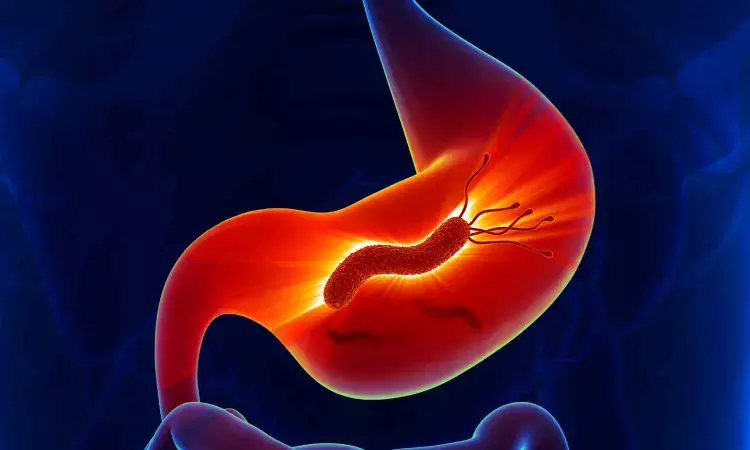- Home
- Medical news & Guidelines
- Anesthesiology
- Cardiology and CTVS
- Critical Care
- Dentistry
- Dermatology
- Diabetes and Endocrinology
- ENT
- Gastroenterology
- Medicine
- Nephrology
- Neurology
- Obstretics-Gynaecology
- Oncology
- Ophthalmology
- Orthopaedics
- Pediatrics-Neonatology
- Psychiatry
- Pulmonology
- Radiology
- Surgery
- Urology
- Laboratory Medicine
- Diet
- Nursing
- Paramedical
- Physiotherapy
- Health news
- Fact Check
- Bone Health Fact Check
- Brain Health Fact Check
- Cancer Related Fact Check
- Child Care Fact Check
- Dental and oral health fact check
- Diabetes and metabolic health fact check
- Diet and Nutrition Fact Check
- Eye and ENT Care Fact Check
- Fitness fact check
- Gut health fact check
- Heart health fact check
- Kidney health fact check
- Medical education fact check
- Men's health fact check
- Respiratory fact check
- Skin and hair care fact check
- Vaccine and Immunization fact check
- Women's health fact check
- AYUSH
- State News
- Andaman and Nicobar Islands
- Andhra Pradesh
- Arunachal Pradesh
- Assam
- Bihar
- Chandigarh
- Chattisgarh
- Dadra and Nagar Haveli
- Daman and Diu
- Delhi
- Goa
- Gujarat
- Haryana
- Himachal Pradesh
- Jammu & Kashmir
- Jharkhand
- Karnataka
- Kerala
- Ladakh
- Lakshadweep
- Madhya Pradesh
- Maharashtra
- Manipur
- Meghalaya
- Mizoram
- Nagaland
- Odisha
- Puducherry
- Punjab
- Rajasthan
- Sikkim
- Tamil Nadu
- Telangana
- Tripura
- Uttar Pradesh
- Uttrakhand
- West Bengal
- Medical Education
- Industry
10-Day Vonoprazan-Amoxicillin Regimen Matches 14-Day Standard Treatment in H. pylori Eradication, reveals research

China: A large-scale study published in the American Journal of Gastroenterology demonstrated that a 10-day regimen of vonoprazan 20 mg twice daily combined with amoxicillin 1000 mg three times daily was equally effective as the traditional 14-day treatment in eradicating Helicobacter pylori.
"The eradication rates were 89.6% for the 10-day regimen and 91.2% for the 14-day regimen, establishing the shorter course as noninferior. Both treatment durations exhibited comparable adverse event profiles," the researchers reported.
It remains unclear whether the 10-day short-course vonoprazan-amoxicillin dual therapy (VA-dual) is noninferior to the standard 14-day bismuth-based quadruple therapy (B-quadruple) for Helicobacter pylori eradication. Considering this, Yi Chen, Department of Gastroenterology, The First Affiliated Hospital, Zhejiang University School of Medicine, Hangzhou, China, and colleagues aimed to evaluate and compare the eradication rates, adverse events, and patient compliance between the 10-day VA-dual regimen and the standard 14-day B-quadruple regimen as first-line treatment for H. pylori.
For this purpose, the researchers conducted a prospective randomized clinical trial across three institutions in eastern China. Three hundred and fourteen treatment-naive patients with H. pylori infection were randomly assigned in a 1:1 ratio to receive either a 10-day VA-dual regimen or a 14-day B-quadruple regimen. Eradication success was assessed using the ^13C-urea breath test at least four weeks post-treatment. The study compared eradication rates, adverse events, and compliance.
The following were the key findings of the study:
- Based on intention-to-treat (ITT) analysis, the eradication rate was 86.0% in the VA-dual group and 89.2% in the B-quadruple group.
- Based on modified ITT analysis, the eradication rate was 88.2% in the VA-dual group and 91.5% in the B-quadruple group.
- Based on per-protocol (PP) analysis, the eradication rate was 90.8% in the VA-dual group and 91.3% in the B-quadruple group.
- The efficacy of VA-dual was noninferior to B-quadruple therapy across ITT, modified ITT, and PP analyses.
- The incidence of adverse events was significantly lower in the VA-dual group compared to the B-quadruple group.
- Poor compliance was a contributing factor to eradication failure in the VA-dual group but did not significantly impact the B-quadruple group.
The authors acknowledge several limitations in their study. First, antimicrobial susceptibility testing was not conducted, though amoxicillin resistance is rare in China, minimizing its impact on the VA-dual regimen's effectiveness. Second, patients allergic to penicillin or those in regions with high amoxicillin resistance may not benefit from VA-dual. Lastly, the open-label design may have introduced treatment bias, affecting adverse event reporting.
"Despite these limitations, the study found a high H. pylori eradication rate of 90.8% with 10-day VA-dual therapy in Eastern China, demonstrating lower adverse event rates than the 14-day B-quadruple regimen. The VA-dual regimen shows promise as a cost-effective option for H. pylori screening and eradication strategies," the authors concluded.
Reference:
Yan, Tian-Lian MD1,*; Wang, Jing-Hua PhD1,*; He, Xin-Jue MD1; Zhu, Ya-Bi BD2; Lu, Lin-Jie MS3; Wang, Yan-Jiao MS2; Wang, Zi-Wei MS1; Gao, Jian-Guo PhD1; Xu, Cheng-Fu MD1; Ma, Han MD1; Luan, Shuang-Mei BD2; Li, Lan MD1; Chen, Yi MD1. Ten-Day Vonoprazan-Amoxicillin Dual Therapy vs Standard 14-Day Bismuth-Based Quadruple Therapy for First-Line Helicobacter pylori Eradication: A Multicenter Randomized Clinical Trial. The American Journal of Gastroenterology 119(4):p 655-661, April 2024. | DOI: 10.14309/ajg.0000000000002592
Dr Kamal Kant Kohli-MBBS, DTCD- a chest specialist with more than 30 years of practice and a flair for writing clinical articles, Dr Kamal Kant Kohli joined Medical Dialogues as a Chief Editor of Medical News. Besides writing articles, as an editor, he proofreads and verifies all the medical content published on Medical Dialogues including those coming from journals, studies,medical conferences,guidelines etc. Email: drkohli@medicaldialogues.in. Contact no. 011-43720751


